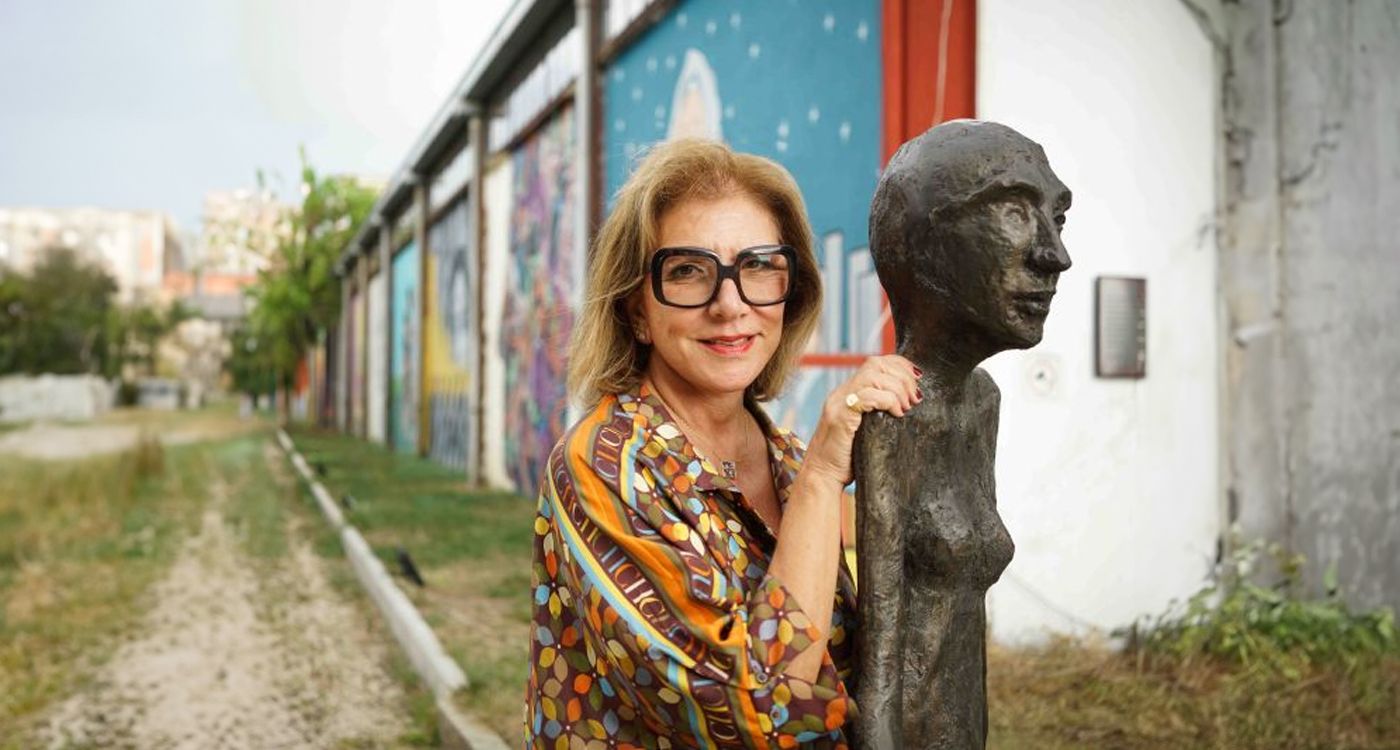
The Caminante exhibition by Alida Torbay at MACAM invites viewers on an artistic journey exploring identity and freedom. Through sculptures and installations, she delves into the evolution of the world and the human experience.
Alida Torbay, a multidisciplinary Lebanese-Venezuelan artist, presents her exhibition Caminante at MACAM (Modern and Contemporary Art Museum), following its debut at the Instituto Cervantes in Beirut. Inspired by Antonio Machado’s poem Caminante, Alida Torbay celebrates the individual’s journey through life, embodying the idea that “the path is made by walking.”
“Caminante, no hay camino, se hace camino al andar” (“Traveler, there is no path; the path is made by walking”)—these words from Machado inspire Alida Torbay’s artistic journey, exploring the very nature of existence. The work unfolds as a mirror reflecting a personal introspection on the world’s evolution. Drawing from her own travels and encounters, Torbay invites each of us to reflect on our own life paths.
Angelo Gioè, the current director of the Italian Cultural Institute in Beirut, is the curator of this exhibition. The Caminante exhibition presents a captivating blend of bronze and resin sculptures alongside installations symbolizing the dynamic nature of travel. Upon entry, visitors are greeted by a sound installation featuring the poem Caminante, read in Arabic by actor Rifaat Torbey and in Spanish by Angelo Gioè.
Resin sculptures punctuate the path throughout the exhibition, visually marking the journey of human progression through the world with giant steps. Bronze statues also fill the space, each carrying its own symbolism: one figure sits on a bench with an open suitcase, representing the emigrant; another sculpture, Girl with Balloons, embodies dreams and lightness; while Woman with a Mask reminds us of the duality of identity, represented by the masks we wear throughout our lives.
Visitors encounter around twenty sculptures, both new and old, with three particularly significant pieces. The Walker, featuring a video embedded within it, delves into the complexity of our identity shaped by the masks we wear. Two brides, one dressed in white and the other in black, symbolize nature’s decay, the assertion of difference, and the fight for freedom in the face of today’s challenges: religious dogma, endangered democracies, new forms of dictatorship, and dehumanizing technology. The artist underscores the importance of defending our democracies and freedoms, which are severely threatened if left unprotected. For Alida Torbay, “physically and technically, the oversized superhuman emerges, oblivious to spiritual, moral, and ethical dimensions. How can we survive without humanism?”
Caminante is far more than an exhibition; it’s an artistic odyssey that transports viewers through the emotions and experiences that have shaped the artist’s life—a sensory and visual exploration. Through bronze and resin sculptures, immersive installations, and evocative videos, she guides us on an introspective journey, inviting us to contemplate our own life paths. As Angelo Gioè puts it: “The condition of the ‘Caminante’ is the primary biological condition, inherent to our humanity. Walking transforms us, makes us human, unties our knots, lubricates our thoughts, activates our organs, and helps us grow.”
At the heart of Caminante are universal themes: identity, the passage of time, freedom, and the human condition. Drawing from Machado’s timeless words, Alida Torbay explores the human soul, inviting us to reflect on our place in the world and the values that drive us. In a world in constant motion, where certainties crumble, Caminante offers a space for contemplation—a chance to reconnect with what is essential and authentic in our lives through an artistic journey that nourishes the senses and the spirit. A contemporary dance performance by Beirut Physical Lab, specially created for the inauguration, marked the opening of this exhibition.
About the Artist
Alida Torbay brings to her work the richness of her life journey. After studying law at Saint Joseph University in Beirut, she began her career as a lawyer. In 1989, she left Lebanon to pursue bioethics studies at the University of Barcelona and philosophy studies at Simón Bolívar University in Caracas. After leading a medical representation company and supporting Milbermar, a social and medical project in the barrios of Los Teques, she left Venezuela in 2015 and became a global citizen—a true “Caminante.”
Her artistic journey began in the 2000s in Venezuela, where she studied sculpture at the Museum of Contemporary Art in Caracas. It was there that she discovered a passion for sculptural art, exploring techniques and artistic expressions that would shape her future work. Her creations, centered on themes of identity, freedom, and the human condition, reflect her deep reflections and artistic commitment to beauty and truth.



Comments